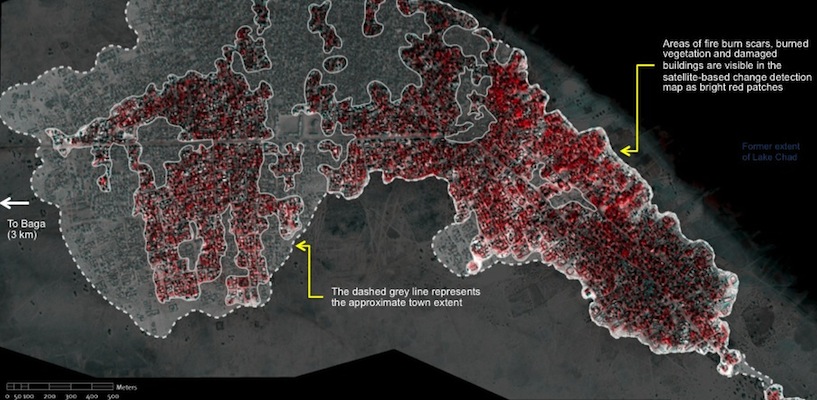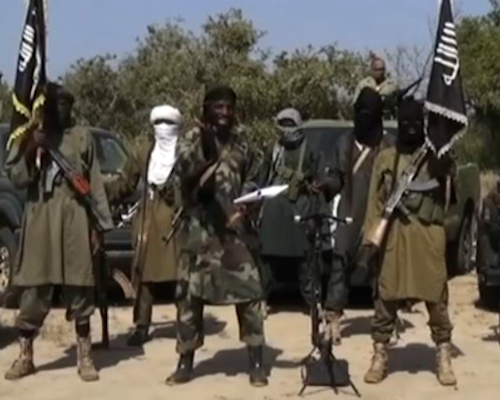ISIS (Iraq and Syria) and Boko Haram (Nigeria) have superficially similar goals and a loose alliance with each other. But the former thrives on attention for global recruitment and to provoke Western military responses through antagonism (inciting further support for the cause), while the latter thrives on the West not caring enough (full story➚) to bother with most insurgencies in sub-Saharan Africa. Both are playing Americans in two very different ways.
In recent months, more than two thirds of the northeastern Nigerian state of Borno has fallen to or been destroyed by Boko Haram. Currently, the state capital of Borno, the city of Maiduguri, is coming under heavy attack nearly daily from Boko Haram. Maiduguri is widely believed by analysts to be high on the capture list as a relatively major city Boko Haram might be able to take … and hold. Its population is slightly larger than that of Mosul, Iraq, the city that became a tipping point prompting Western gaze to return to the insurgency under its new name of ISIS just over six months ago.
But even without Maiduguri, Boko Haram has already drawn even with or far surpassed ISIS on a number of factors. For example, the estimated 10,000-13,000 people Boko Haram killed in 2014 alone is more than twice if not three times larger Boko Haram’s own figures for the previous four years combined, as well as being several thousand greater than the ISIS killing rate for 2014, along with holding higher records for mass execution events.
Territorially, Boko Haram has made achievements similar to those of ISIS. As previously noted on this site:
TIME magazine reports this alarming development:
Boko Haram […] controls an estimated 30-35,000 square kilometers, roughly the same amount of terrain as Syria and Iraq’s Islamic State.
It’s pretty telling about U.S. priorities, over-reactions, and under-reactions in different parts of the world that the response to ISIS last year was sharply different — which is to say, not even on the same scale of magnitude — from the response to Boko Haram, even as they now control the same land area by size.
Mass executions by ISIS in Syria and Iraq have so far reportedly topped out at 700 people in a two week killing spree (although the total figures across incidents over the past year are significantly higher). If the civilian body count estimates coming out of north Borno state in northeast Nigeria prove correct, Boko Haram will have already significantly exceeded the August 2014 massacres by ISIS.
While Boko Haram certainly warrants more attention from the United States and Europe than it has gotten (although ideally it would be a more judicious and targeted attention than the hysteria ISIS has provoked), it is also important to remember that the differences in coverage and attention are at least partially a function of the radically different modus operandi of each group.
Read more






